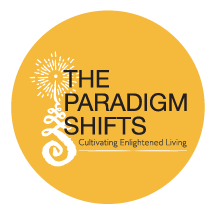Whether self-employed, employed by organizations, whether retired or unemployed, we all engage with companies and organizations that support us or we support them. In our interactions with these organizations, what we are wanting is to experience qualities of dignity, first and foremost. This means being treated as a sovereign individual of value, worthy of respect. I want people to communicate authentically, with curiosity and interest.
Disheartened by too many disappointments with customer service representative, HR people and boss who have an agenda above and beyond the notion treating us as human beings, we’ve come to choose to cloak ourselves in various armor-styles. Through this strategy we attempt to mitigate the experience of being disempowered, triggered by attitudes and environments that are less than safe.
Consequences of stressful conversations and working environment are such that each of us actually empower ourselves to choose ways of being that are disempowering. We choose to lower our heads, withdraw and withhold, generating far less creativity, innovation, engaged sharing, often precipitating depression and demoralizing environments.
We are all affected by our own unique ways of empowering ourselves to disempower ourselves. That sounds confusing but it is none-the-less accurate. We want to blame others and remain unconscious as to how we are creating our own demise. Denial is the word that comes to mind, the letters stand for Don’t Even Know I am Lying.
Certainly we are affected by other people’s attitudes, moods and actions. At the same time, it’s important to get that they are also very much affected by our own. Our tendency is to want others to change so we can feel safe enough to then change too.
Quite often people are angered by my suggesting that we are not victims to our circumstance, that somehow we are collaborators and colluding with the enemy; that we are responsible for the abuse that is perpetrated upon us. My job is to provide an environment, in this case through my writing, where people can feel safe enough to being exploring possibilities beyond this current paradigm, which doesn’t allow deeper examination of the role we play within abusive environments.
Distinguishing what it is you are committed to will facilitate a conversation that either generates a discovering process or a disempowering process. This is in alignment with our previous discussion regarding commitments and conflicting or underlying commitment. Disclosing both reveals patterns and processes that we are unlikely aware of, yet present powerful and devastating outcomes.
D is for Dilemma,
I spoke about this in my previous blog, that we are wanting change in our work environment and at the same time we are fearful of the consequence for being the change you are wanting. This creates a dilemma and precipitates a critical choice-point in just about every arena of our lives not just in the workplace. Again, getting clear about what you want and the degree to which you are committed to what you want can mean you begin to detach yourself from the perspectives and interpretation by which you have been living, being and acting. Through detachment you create a more expanded capacity to witness yourself making choices that aren’t in alignment with your own commitment. You begin to distinguish your actions from your thoughts, and intently choose to choose in alignment with what you are wanting.
Detach from Fear
At the New Living Expo, where I spoke about spiritual wounding in the workplace, there were many individuals present who experienced such disappointment, depression, dejection through their workplace. As we spoke it became clear that they needed to become their own advocate; not just in standing up for themselves but by noticing how they may be contributing to their workplace being less than optimal.
One woman asked “ "What are some things I can practice before going into a meeting where I feel less than?" I encouraged her to sit quietly and get clear with her intentions “ what it is she really wanted from the conversation, and then to feel the quality of that experience in her body of having it already. In this way she can truly embody her intention, and when embodied she’d be more than likely to follow through. Otherwise, the anxiety and fear precipitated by her conflicting commitment would take over and she would lose her nerve and withdraw.
A second person shared that he had used this particular practice and had experienced positive results. He shared that he’d followed through because he was able to stay in alignment with his intention by staying in this embodied experience.
Again, we have to be willing to detach from thoughts that precipitate sensations of anxiety and other discomforts. Habitually we act from these body sensations, hence it’s important to distinguish when we are acting from the and when we are acting from our intention. We know it in our bodies.
Domain of Humanity
I want to be clear with you that we choose to choose what we choose based on the ground of being we stand upon; the precepts of which are either fear-based or essence-based. These precepts reside in the Domain of Humanity.
Utilizing our personal power, we choose from fear or from non-fear. Our current paradigm is fraught with fear-based realities that we presume to be true. Can we detach ourselves from these fear-based thoughts enough to allow possibility to reveal itself? Can we allowing ourselves to expand our comfort zone to include what has yet to be conceived as real in our own thinking?
A fundamental practice that empowers this exploration is to distinguish the roots of your choice-making, within the Domain of Humanity. Just through noticing what is occurring in your body “ those sometime very subtle tensions or releasing, you can reveal to yourself whether the current choice in founded on fear or founded on essential wisdom. Only through practice will you be able to reveal fascinating choice-making processes that empower you, in the long run, to self-generate dignity. Enjoy the exploration!
